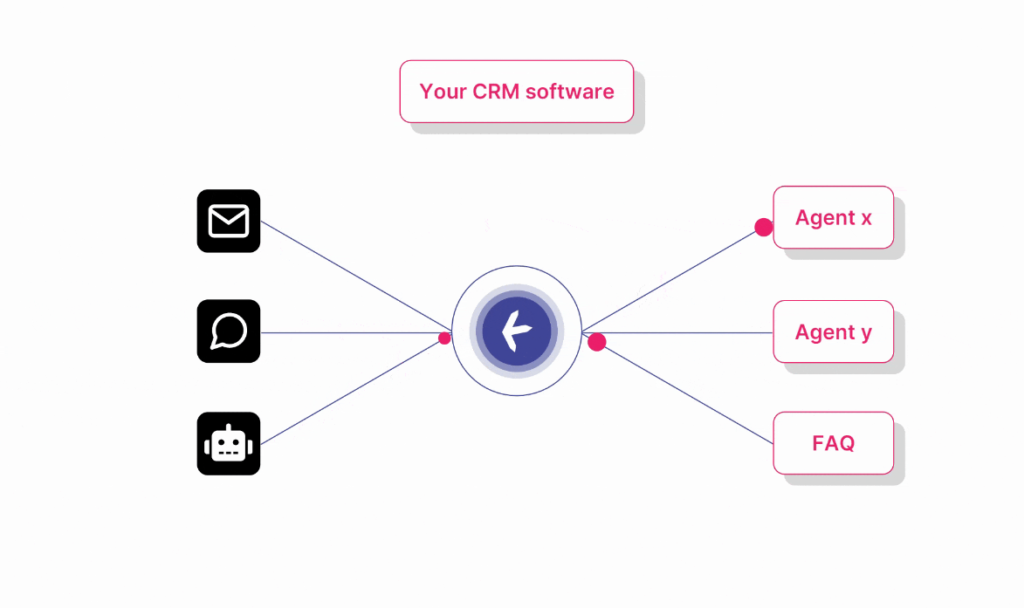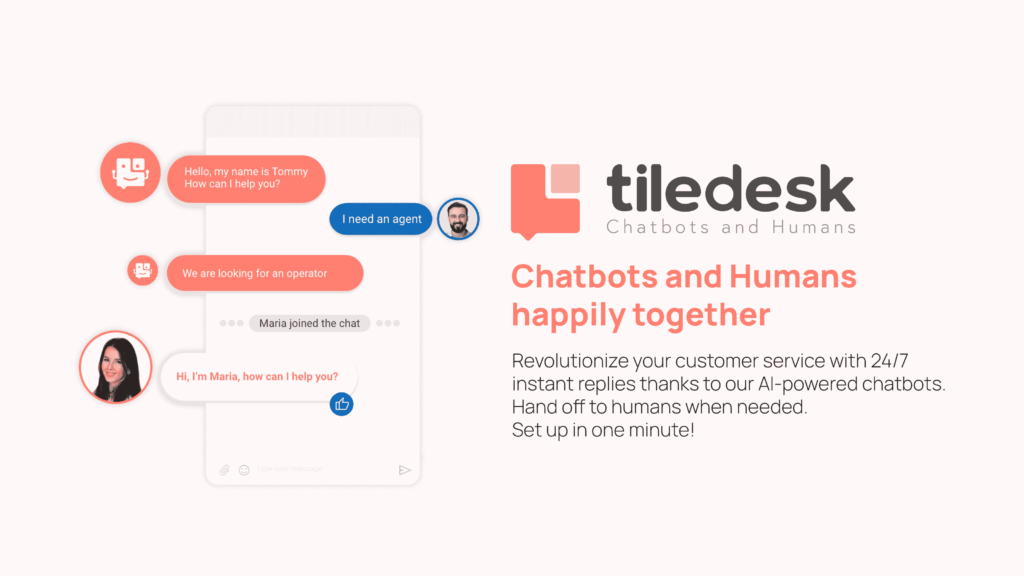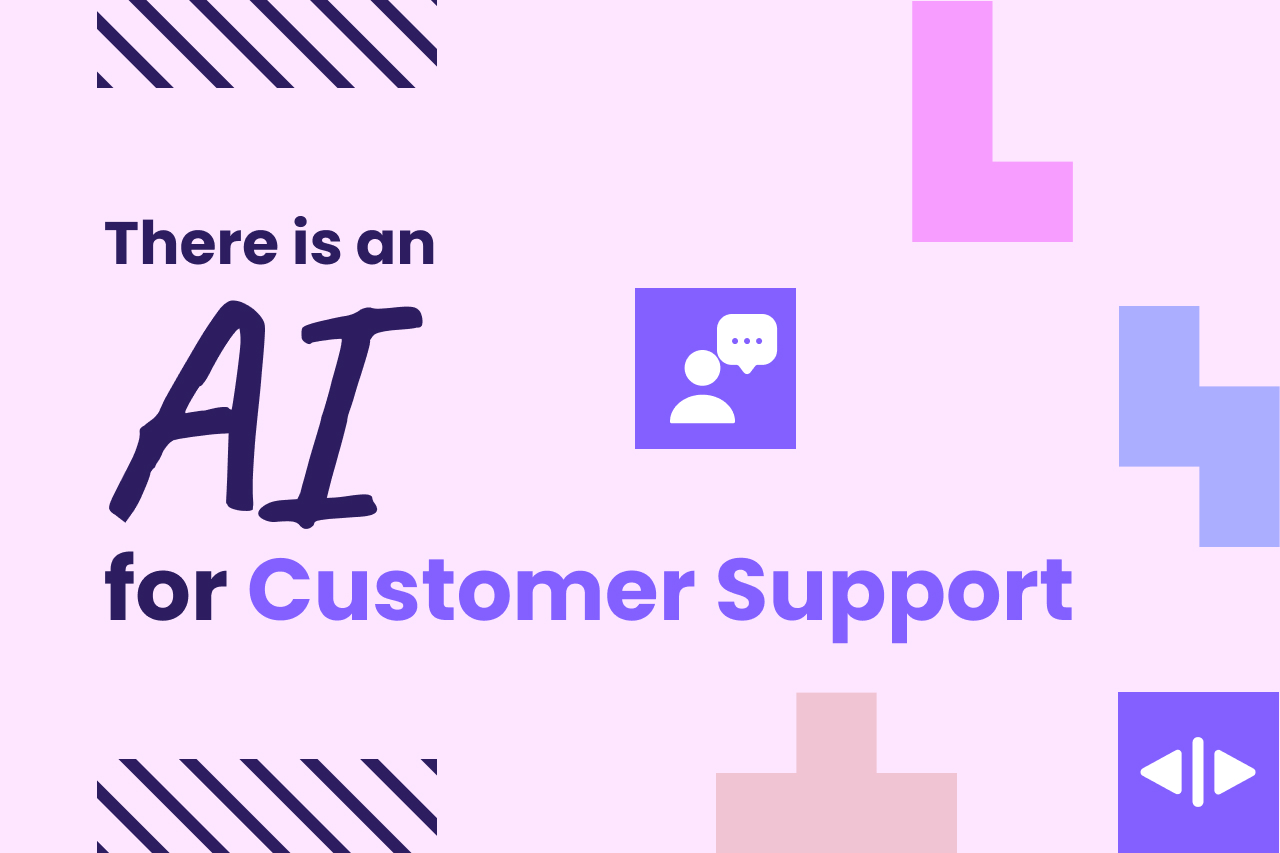Do you remember the last time you waited on hold for customer support? Chances are, it wasn’t a pleasant experience. In a world where time is money, waiting on hold simply doesn’t cut it. People simply don’t have the patience to wait for a human representative to become available. They want help now, and chatbots are able to provide this on-demand service.
That’s what led to the rise of AI chatbots which are available around-the-clock with rapid response times. No more waiting on hold for hours or sifting through endless FAQs. With chatbots, customers can get their questions answered almost immediately, at any time of the day or night.
The recent developments in generative AI and NLP has taken it a notch ahead empowering chatbots to perform more personalized and seamless interactions with customers.
Read on to discover the top 5 AI chatbots in the industry and how they are improving the customer experience.
But before we dive in, let’s understand what sets AI chatbots apart from their button-based counterparts.
AI-based vs Button-based Chatbots
Here’s a quick breakdown of the main differences between the two:
- Natural language processing (NLP): AI-based chatbots use NLP to understand and respond to customer queries in natural language, while button-based chatbots provide predefined responses to users’ clicks on buttons.
- Flexibility: AI-based chatbots are more flexible than button-based chatbots since they can learn and adapt to new situations over time. Button-based chatbots, on the other hand, are limited to the pre-defined options provided to customers.
- Personalization: AI-based chatbots can provide personalized recommendations and tailor responses to individual customer needs, while button-based chatbots have a predefined set of responses that may not address the specific needs of each customer.
- Complexity: AI-based chatbots can handle complex inquiries that may require a more nuanced response, while button-based chatbots are better suited for simple and straightforward inquiries.
- Cost: AI-based chatbots can be more expensive to develop and deploy compared to button-based chatbots, which require less investment and are quicker to implement.
AI chatbots clearly win the race; however businesses still use button-based chatbots depending on the specific needs and budget.
Why Are AI-based Chatbots the Future of Customer Service?
AI-based chatbots offer numerous benefits for businesses, including:
- Scalability: Chatbots can handle a large number of customer interactions simultaneously, 24/7, without getting tired or making mistakes. This means that they can help businesses scale their customer support operations without the need for additional staff.
As your business grows, you can scale up your chatbot service with a few taps which wouldn’t have been the case if you were to hire employees.
- Extension of brand personality: Chatbots can be programmed with a brand’s personality and tone of voice, allowing them to deliver a consistent customer experience that aligns with the brand’s values. No need to spend hours on manual training!
- Improved customer experience: Chatbots can provide quick and personalized responses to customer inquiries, reducing wait times and increasing customer satisfaction. They can also handle routine tasks like answering frequently asked questions, freeing up human agents to focus on more complex issues.
- Better connectivity: Chatbots can be integrated with various communication channels, including social media, messaging apps, and email, allowing businesses to be visible and present at all channels so customers can easily reach out to them from where they are most active.
AI-based chatbots, therefore, become a valuable asset for businesses that help them increase efficiency, productivity, and customer satisfaction.
Top 7 AI Chatbots You Need To Know About
1. Fin by Intercom
Fin by Intercom is a powerful conversational AI assistant designed specifically for businesses. One of the unique features of Fin is its ability to seamlessly transfer the conversation to a human agent when needed. If Fin is unable to answer a question or if the customer requests to speak with a human, Fin can transfer the conversation to a human agent without any disruption to the customer’s experience. This ensures that customers receive the best possible support, whether it’s from an AI assistant or a human agent.
The ability to learn from customer interactions enables Fin to offer valuable insights to businesses to identify common customer pain points or frequently asked questions.
2. Dialogflow CX by Google
Dialogflow CX is a powerful conversational AI platform developed by Google designed to help businesses build sophisticated, natural language chatbots and virtual assistants that can handle complex customer interactions. Dialogflow CX allows businesses to create conversational flows, build custom intents and entities, and integrate with various back-end systems to create a seamless and personalized experience for customers.
One of the key features of Dialogflow CX is its ability to handle emotionally complex dialogues and multi-step conversations. It can understand the emotive context of a conversation and provide relevant responses. It also has a visual flow editor that allows businesses to design complex conversation flows with ease. Dialogflow CX also supports integration with various third-party platforms and tools, such as Google Cloud Platform, Google Analytics, and various messaging channels like Facebook Messenger and Slack, which makes it a popular choice for growing businesses.
3. Kore.ai

Kore.ai enables businesses to build, manage, and deploy chatbots and virtual assistants across multiple channels. The platform utilizes natural language processing (NLP), machine learning (ML), and other AI technologies to create intelligent conversational experiences that help businesses automate routine tasks and improve customer engagement. A key feature of this chatbot platform includes its bot builder: an intuitive drag-and-drop interface that allows businesses to create and customize chatbots and virtual assistants without any coding experience.
4. Tekst.ai

Tekst.ai provides its users with a flexible platform to deploy chatbots across various channels, including web, messaging apps, social media, and more. The in-built comprehensive dashboard provides real-time data on user interactions, bot performance, and customer satisfaction to help businesses identify pain points, customer behavior and areas of improvement to enhance customer experience and reduce operational costs.
5. Jinnee

Jinnee is an AI-based customer support platform for fintech companies that can be integrated with various financial systems, including banking platforms, payment gateways, and accounting software to offer a seamless customer experience. Tools like those offered by Jinnee are incredibly useful for fintech companies to create positive customer experiences and maintain customer loyalty in a rapidly evolving industry. Jinnee automates routine tasks, such as transaction processing, balance inquiries, and fraud detection, freeing up customer support staff to focus on more complex issues.
6. Eddy AI

Eddy AI is a cloud-based platform that offers AI-powered solutions for automating customer service, sales, and marketing operations. Like most such platforms, Eddy AI comes with a robust NLP engine that can understand and interpret user intents, entities, and contexts to provide personalized responses. The platform utilizes machine learning, natural language processing, and other AI technologies to create intelligent conversational experiences that can handle customer inquiries, personalize customer interactions, and automate routine tasks.
7. Tiledesk

Tiledesk provides omnichannel support and AI-based chatbots to businesses. Its chatbots integrate with various communication channels, including web, mobile, social media, and messaging apps, providing a seamless omnichannel customer experience. Customers can initiate conversations with the chatbot on any of these channels and continue the conversation seamlessly on another channel, without having to repeat their query. TileDesk’s integration capabilities enable businesses to connect the platform with their existing systems and third-party applications, further streamlining their workflows and operations.
Where Do We Go From Here? The Future of AI Chatbots
The future of AI chatbots for industries, businesses, and customers looks bright, with several potential advancements and benefits:
Automatic Response Options
One of the main future possibilities of AI in customer support is its ability to provide automatic response options, enabling customers to receive quick and efficient answers to their queries without having to wait for a human agent to respond. AI-powered chatbots will likely be able to handle a larger volume of inquiries simultaneously, reducing the wait time for customers and increasing the efficiency of the support process at scale.
Adding Tonal Differences
AI-powered chatbots might get programmed to add tonal differences in their responses based on the nature of the customer’s query. For example, if a customer is expressing frustration or anger, the chatbot can respond in a more empathetic tone to diffuse the situation. This human touch to the interaction would help build a stronger connection between the customer and the company.
Personalized & Complex Interactions
As technology develops, the upcoming chatbots will be able to meet specific and complex needs of customers and offer personalized responses that adhere to their chatting preferences and level of understanding by analyzing customer data and past interactions. This will significantly improve the overall customer satisfaction and experience.
Predictive Possibilities
AI chatbots will enable businesses to use predictive analytics to anticipate customer needs and provide personalized recommendations. Chatbots will become more intelligent, enabling them to analyze customer data and provide insights to businesses to improve their products and services, even marketing efforts.
Operational Costs
AI chatbots will continue to reduce operational costs by automating routine tasks and enabling businesses to handle more inquiries without increasing the workforce. Chatbots will become more efficient, enabling businesses to scale their operations without increasing their costs.
Multilingual Chatbots
With the world becoming smaller with every passing second and new tech development, AI chatbots will be able to cater to the needs of global speakers and customers and offer localized answers to them in one place increasing the reach of customers.
Ready to Set Chatbots For Your Business?
AI customer support acts as a bridge between customers and companies by providing quick and efficient support. As AI technology continues to advance, we can expect chatbots to become more intelligent and more ubiquitous, providing personalized and seamless customer experiences across various communication channels.


